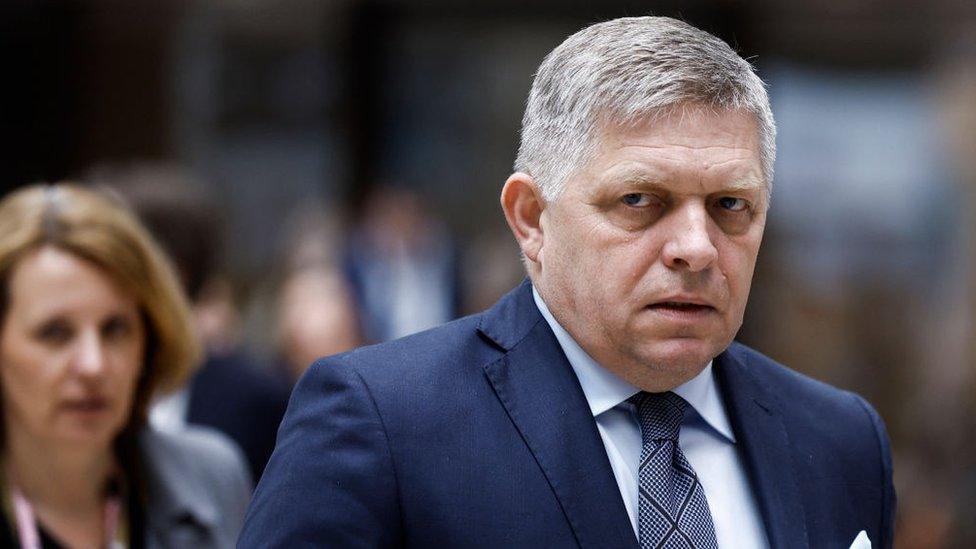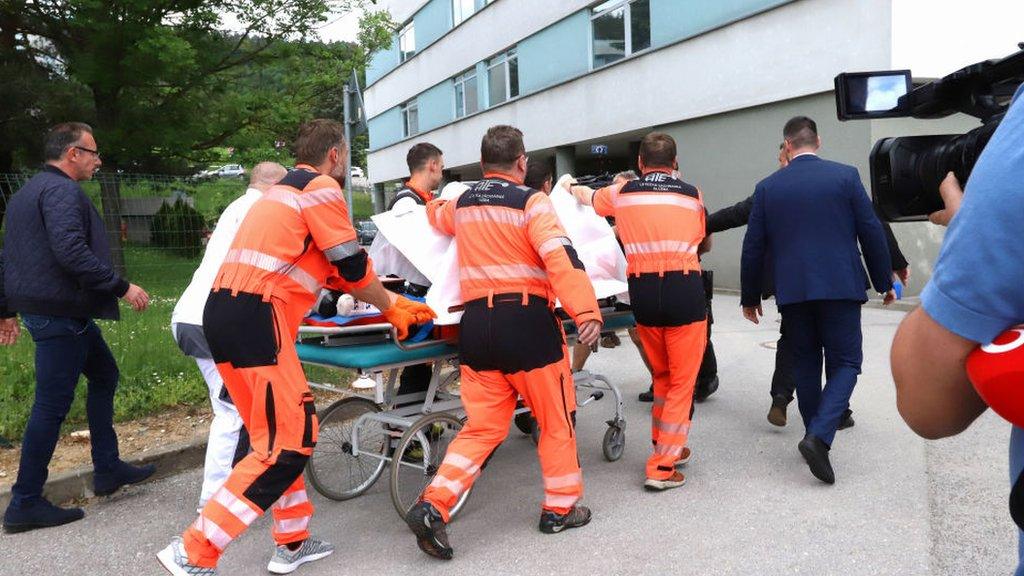Slovakia PM Robert Fico 'approaching a positive prognosis'
- Published

Robert Fico was shot several times at close range by what the authorities say was a "lone wolf" gunman
Slovakia's Prime Minister is steadily approaching a "positive prognosis" after undergoing further surgery, the country's deputy leader says.
Robert Fico, 59, was gravely injured after being shot in the small town of Handlova on Wednesday.
He is currently in a serious but stable condition. Officials said it was unlikely he could be moved back to Bratislava in the next few days.
Meanwhile, the man charged with his attempted murder appeared in court.
It ruled that he be placed in custody until his trial, according to a court spokeswoman.
The alleged assailant has not been formally named, but Slovak reports have widely identified him as 71-year-old Juraj Cintula from the town of Levice.
The Pravda newspaper described Mr Cintula as a poet, while the Sme newspaper reported that he had been involved in many different politically-based organisations, with various ideologies.
Deputy Prime Minister Robert Kalinak said on Saturday the various medical procedures Mr Fico had undergone were "beginning to bear fruit" and that there was no need to formally take over his official duties.
He said "several miracles" had taken place at the hospital the prime minister was being treated at, thanks to the efforts of medical staff.
"I can't find words of gratitude for the fact that we are steadily approaching that positive prognosis," he added.
Nevertheless, Mr Kalinak said the prime minister's condition was still "really serious".
"Certainly, it does not allow us to make such a transfer in the near future — that is, at the end of the weekend."
Mr Fico was shot four times in the stomach and arm at close range as he greeted supporters, and his injuries were said to be extensive and complicated.
He is understood to have undergone a number of surgeries, including the latest to remove dead tissue.
Interior Minister Matus Sutaj Estok said on Thursday that the suspect in Mr Fico's shooting had acted alone and previously taken part in anti-government protests.
The attack has left Slovakia tense and deeply polarised. Deputy Prime Minister Robert Kalinak has called for the country to embark on a path of tolerance and accused the opposition and the media of stirring up hatred.
Mr Fico returned to power in Slovakia after elections last September, at the head of a populist-nationalist coalition.
The political climate in the country has since turned particularly hostile - although the divisions date back to at least 2018, when a journalist investigating high-level corruption claims was murdered.
Mr Fico was forced to step down then, amid giant protests.
His re-election was a major comeback achieved on a platform that included promises to end military aid to Kyiv and veto Ukraine's Nato ambitions, as well as other talk more reminiscent of Moscow than Brussels.
Related topics
- Published16 May 2024
